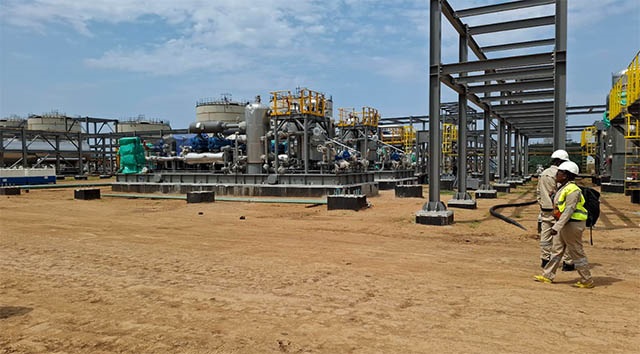
However, stakeholders emphasize the need to tackle challenges in taxation, technology, and skills development to unlock the sector’s full potential
Kampala, Uganda | JULIUS BUSINGE | Uganda’s oil and gas industry is reshaping the nation’s economy, presenting unparalleled opportunities for local businesses and individuals. However, stakeholders emphasize the need to tackle challenges in taxation, technology, and skills development to unlock the sector’s full potential.
Since the Final Investment Decision (FID) in February 2022, TotalEnergies EP Uganda’s workforce has grown from 3,200 to over 10,200, including contractors. Deputy General Manager Mariam Mbowa highlighted that 3,500 residents have secured jobs at Tilenga, underscoring the sector’s significant community impact. TotalEnergies has also invested $10 million in training Ugandans, contributing to in-country value creation of $718 million by Q3 2024, with 270 local companies actively engaged.
Similarly, CNOOC Uganda Limited has trained 1,342 individuals in technical skills and supported 505 SMEs through supplier development programs. The company employs 2,507 Ugandans at the Kingfisher Development Area.
These milestones were celebrated at the 5th National Content Conference, themed “Advancing National Content in the Oil and Gas Sector: Three Years After FID,” held at Speke Resort Munyonyo. The event, organized by the Petroleum Authority of Uganda (PAU) and the Uganda Chamber of Mines and Petroleum (UCMP), emphasized progress while addressing gaps in taxation, capacity building, and technology transfer.
PAU’s Director of Economic and National Content Monitoring, Peninah Aheebwa, noted that projected investments of $2.9 billion in 2024 and $2.3 billion in 2025 would lay the foundation for an additional $15 billion over 15 years. Minister of Energy and Mineral Development Ruth Nankabirwa stressed the need to translate these investments into tangible benefits through employment, enterprise development, and skills transfer.
Thousands of jobs created
Currently, 14,451 people are directly employed in the sector, with 90% being Ugandans. Communities hosting oil and gas operations account for 4,483 of these jobs. The sector is projected to employ approximately 160,000 people at its peak.
Economic contributions are expected to surge as foundational infrastructure, such as the export pipeline, refinery, and processing facilities, is completed. The Uganda National Oil Company (UNOC) projects the refinery to add $3.4 billion annually to GDP, while the Kabalega Industrial Park is anticipated to contribute $4.9 billion annually, creating 32,000–35,000 direct and indirect jobs.
Taxes remains a big headache
However, challenges persist. UCMP CEO Humphrey Asiimwe called for an equitable tax regime, urging that Value Added Tax (VAT) be collected only upon payment to contractors to ease cashflow pressures. Pamela Natamba, Vice Chairperson of UCMP’s Governing Council, stressed the importance of addressing skills gaps, regulatory hurdles, and capacity limitations while prioritizing joint ventures and technology transfer.
The UCMP is also exploring partnerships with emerging markets like Namibia and Mozambique to enable Ugandan companies to share expertise in local content development and regulatory compliance, fostering sustainable industries across Africa.
The conference concluded with an awards ceremony recognizing excellence in national content promotion. The launch of the Joint Qualification System (JQS) was another highlight, promising to streamline contracting processes and expand opportunities for Ugandan businesses.
 The Independent Uganda: You get the Truth we Pay the Price
The Independent Uganda: You get the Truth we Pay the Price



